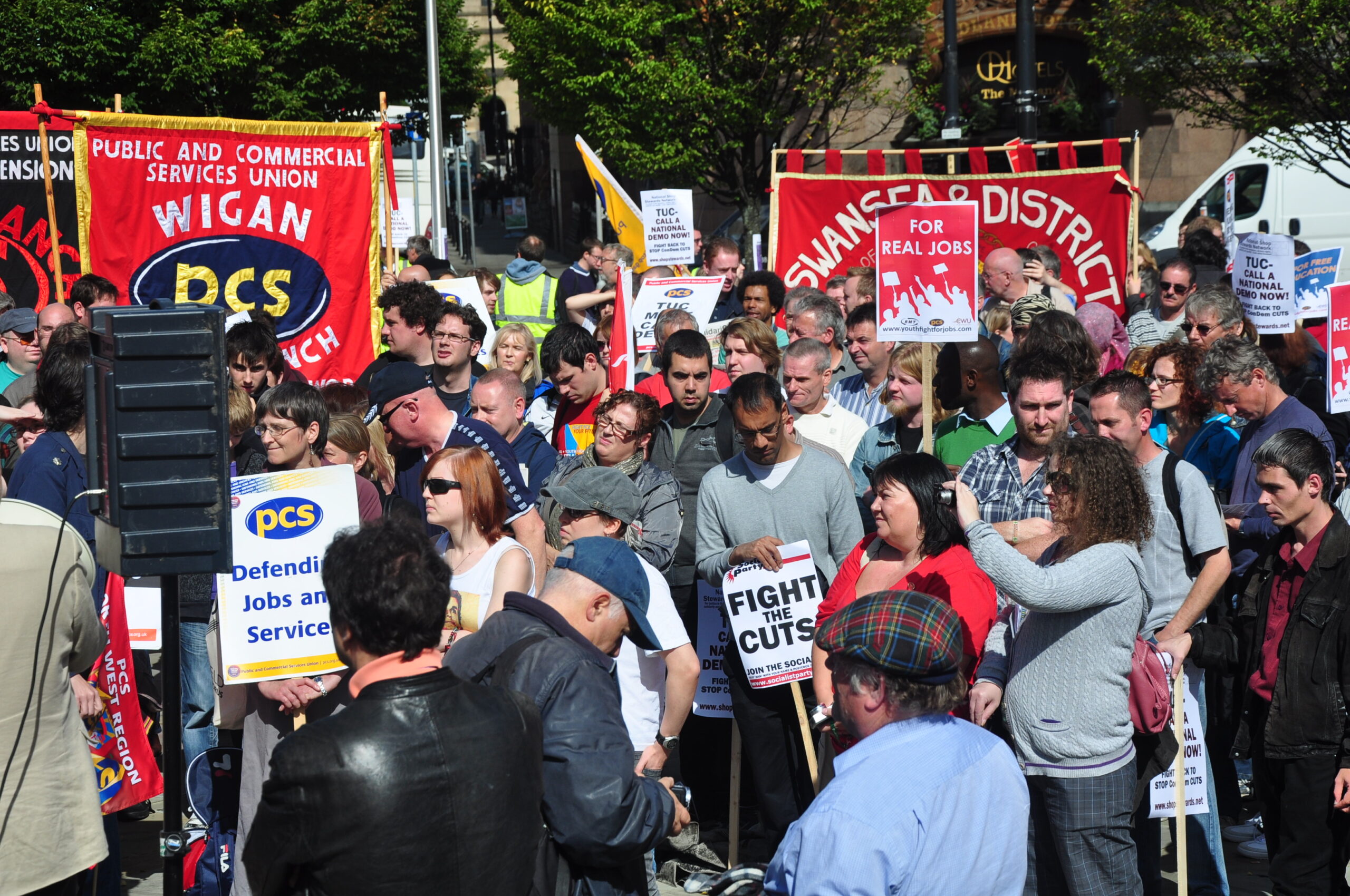Never has there been so much at stake for millions of working people and many middle class people, as this government prepares its spending cuts.
Tory prime minister David Cameron and chancellor George Osborne, Liberal Democrat deputy prime minister Nick Clegg and chief secretary to the Treasury Danny Alexander spent the weekend at Chequers. They were finalising the details of the cuts package before presenting their plans to parliament on 20 October in the comprehensive spending review.
They and their Tory and Lib Dem cabinet colleagues not only represent the richest in society, they themselves are among this elite category. They have never had to worry about how to pay the bills or what will happen to them or their families if they cannot work.
They live a thoroughly cushioned existence. They really do represent the gilded cosseted millionaire and billionaire class of parasites that now dominate the ruling layers of society.
Egged on
The rich and super rich are egging on the government to fundamentally change the post-war consensus of the welfare state and the minimum protection it offers to those most in need at the bottom of the ladder.
This is a crisis caused by the banks’ and the bosses’ greed – but it is fundamentally a crisis of the capitalist system. Our struggle must involve discussion about alternative ways of running society, about socialist ideas.
“They have never had it so good” to quote a past Tory prime minister Harold Macmillan when he pretended to talk about the population at large. But now it is the elite that have never had it so good. The question on every serious press commentator’s lips is, will the government get away with it?
In its June emergency budget, Osborne laid out the initial plans to cut the budget deficit by £113 billion in five years. The only difference between him and Labour chancellor Alistair Darling was that Darling had planned to cut the deficit of £109 billion by half in four years. Now Labour talk about reducing the amount of saving to be made by cuts – but they still talk about unbearable cuts.
No need for cuts

PCS workers on strike. Mark Serwotka, (top row, third from left) joins strikers, photo Paul Mattsson
Yet as Mark Serwotka, civil service union PCS general secretary has said: “There is no need for anybody to cut a single penny or cut a single job”.
As with the mass movement against the poll tax the capitalist class can be forced to retreat if there is enough resistance from the working class. The crux of the matter is how will this resistance be brought about and under what circumstances?
The wave of propaganda emanating from the capitalist media is unrelenting. The message is that cuts to public spending are the only way forward. Opinion polls are brought out showing that a majority of people seem to accept this.
But ‘public opinion’ will be shifted once ordinary people see that resistance against the cuts is growing. In particular when people see for themselves what the cuts actually amount to.
The recent 1,000-strong demonstration in Newport, Wales, against the closure of the Passport Office shows that, with a clear lead workers will take action against cuts.
Protests are taking place, both on 20 October and even more so on 23 October, with demos in towns and cities up and down the country.
Coordinated strike ballots
At its conference last month the TUC agreed to organise and coordinate resistance to the cuts by supporting joint union industrial action. They have announced plans for a national demo next March. But once the enormous scale of the cuts becomes obvious, it will be clear that this is far too late. Unions should be demanding that the TUC brings forward its demonstration to before Christmas.
At the same time all public sector trade unions should immediately coordinate their strike ballots for action against cuts, job losses and attacks on pensions.
The next step should be for the successful ballots to result in coordinated strike action – a 24-hour public sector general strike – within the next two months. Action of this nature has been threatened before in 2005, when it forced the New Labour government to retreat from its attack on public sector pensions.
At local level the National Shop Stewards Network (NSSN) and the local anti-cuts campaigns are playing a crucial role in organising the fight against the cuts.
On 22 January, the NSSN has called a conference of all anti-cuts campaigners in order to start to coordinate the anti-cuts campaigns nationally. This will be crucial for strengthening the national anti-cuts movement and increasing the pressure on the leadership of the trade union movement to take effective action against the cuts.
It is action and only action that will force the government to retreat. They think they can do anything at the moment. But as the European capitalist governments are finding out, particularly in France, workers will not lie down and take it without fighting back. It is time that this became the case in Britain as well.










